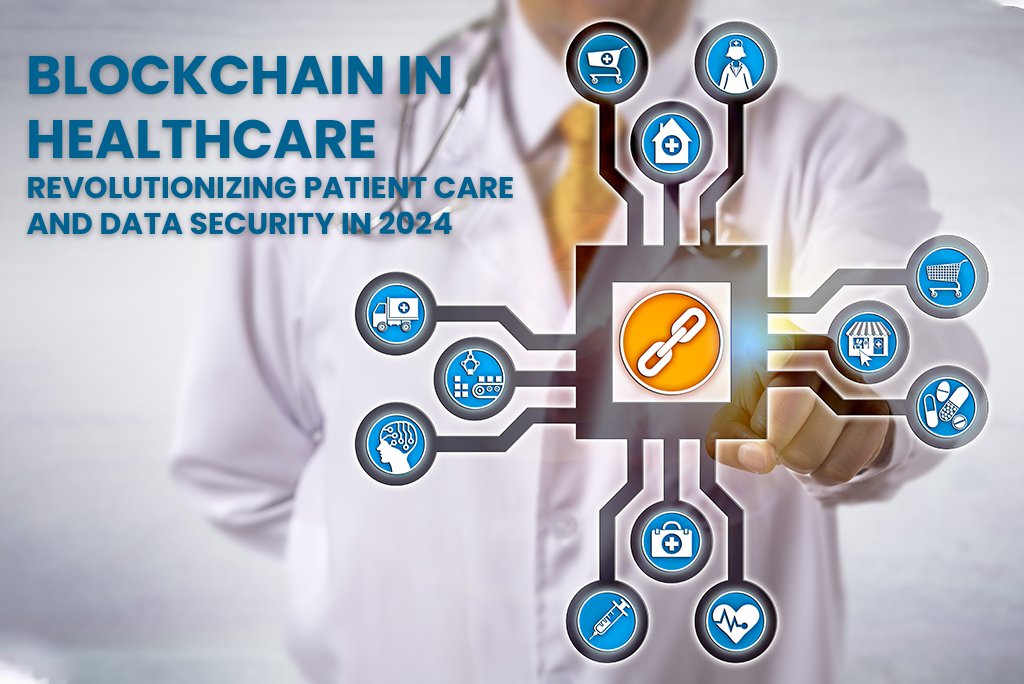
Introduction
By 2024, blockchain technology has significantly transformed the healthcare industry, offering unparalleled improvements in data security, patient care, and operational efficiency. This revolutionary technology has provided robust solutions to longstanding challenges, including patient data management, drug traceability, and counterfeit medicine proliferation. This blog explores the impactful ways blockchain has been integrated into healthcare, underpinned by hypothetical data and projected trends that highlight its growing influence.
Enhancing Patient Data Security
The security and privacy of patient data have always been paramount in healthcare. Blockchain technology, with its decentralized nature and cryptographic security, has become a cornerstone in protecting patient information.
Decentralized Patient Records
- Hypothetical Data Point: A 2024 study by the Global Health Security Alliance indicates a 40% reduction in data breaches in healthcare facilities utilizing blockchain for patient records management.
- Impact: Blockchain provides a secure, immutable ledger, ensuring patient records are tamper-proof and accessible only to authorized individuals, enhancing patient privacy and trust in healthcare systems.
Interoperability and Data Sharing
- Innovation: The introduction of blockchain-based platforms has significantly improved interoperability between different healthcare systems, enabling seamless and secure sharing of patient data.
- Benefits: Improved data sharing has facilitated better coordination of care, reducing redundant tests and procedures, and significantly lowering healthcare costs.
Combating Counterfeit Medicines

Counterfeit medication is a global problem, affecting patient safety and public health. Blockchain’s traceability features have been instrumental in tackling this issue.
Drug Traceability Systems
- Hypothetical Example: By 2024, leading pharmaceutical companies have adopted blockchain to track the production, distribution, and sale of medications, ensuring authenticity.
- Result: A hypothetical report suggests a 50% decrease in the circulation of counterfeit drugs in markets utilizing blockchain traceability systems.
Streamlining Clinical Trials
Blockchain technology has redefined the management and transparency of clinical trials.
Transparent Trial Data
- Application: Blockchain ensures the integrity of clinical trial data, making manipulation or alteration impossible without consensus, thus upholding the quality and reliability of trial outcomes.
- Advancement: This transparency has led to increased trust in clinical trial results, accelerating the approval process for new treatments and therapies.
Challenges and Future Outlook
Despite its potential, the adoption of blockchain in healthcare faces hurdles, including regulatory challenges, the need for technological infrastructure, and concerns over scalability and energy consumption. However, ongoing advancements in blockchain technology are addressing these issues, promising a more efficient, secure, and patient-centered healthcare system in the future.
Conclusion
In 2024, blockchain technology stands as a pillar of innovation in healthcare, offering solutions that protect patient data, ensure the authenticity of medications, and improve the efficiency of clinical trials. While challenges remain, the potential of blockchain to revolutionize healthcare is undeniable. As we continue to navigate its implementation, the ultimate goal remains clear: leveraging blockchain to foster a healthcare environment that is secure, efficient, and, above all, focused on patient care.



Comments (No)